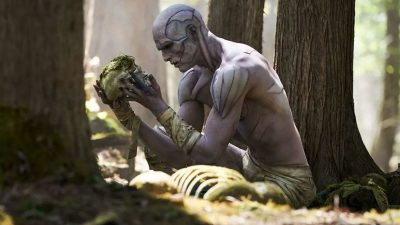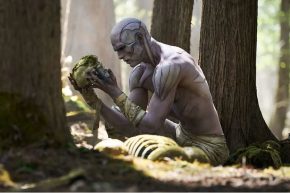It is the living nightmare of every parent: your child is gone. That is the premise of Zach Cregger’s new horror: no screams, no kidnappers, no ominous note, just an entire class of schoolchildren vanishing in the middle of the night, leaving behind their beds and toys as if nothing happened.
Released in August, the film wants to be a horror movie, a community drama, a supernatural fable, and a dark comedy all at once. It is inventive, promising and shot with dynamism but let’s hope this is not the scariest horror we will see this year.

A Town in Pieces
The story takes place in the fictional town of Maybrook, Pennsylvania, shaken when all but one child from the same class cross their front yard at exactly 2:17 a.m. and never return. Parents are distraught, their teacher is under suspicion, and the police are immobilized. The film follows several perspectives in chapters, and each character-chapter is meant to represent different shades of grief.
Josh Brolin plays Archer, an architect and father who refuses to give up the search for his son. Julia Garner portrays Justine, a young teacher drowning her fear and guilt in alcohol and reckless hookups. Alden Ehrenreich’s Paul, a policeman with emotional regulation issues, destroys both his career and personal relationships under the weight of his own demons. And Austin Abrams, in a performance that steals nearly every scene, is James Anthony, a wiry addict living in a tent who stumbles into the heart of the mystery.
Cregger has bravely admitted that the entire film grew out of his own experience of loss. Each character reflects a stage of grief he lived through. Some portraits work, others feel underwritten, but together they form a picture of a town unraveling.

Scary, Funny, or Just Strange?
Despite its R rating, Weapons is not particularly frightening. What it offers instead is an uneasy mix of horror, folklore, dark comedy, and old-school small-town drama. The opening, with children slipping into the night in slow motion, set against All Things Must Pass by George Harrison, is mesmerizing. Cinematographer Larkin Seiple (Everything Everywhere All at Once) shoots in painterly compositions with pretty lighting and smooth, dynamic motions. These first minutes are the strongest in the film.
But tonal shifts don’t always land. At times, Weapons feels less like Hereditary and more like Scary Movie. A mother stumbling trance-like with a knife, or Amy Madigan’s wild Gladys in the finale, elicit laughter. Cregger himself admitted in interviews that many scenes were cut because they tested as “not funny enough”. The genre-blending is bold, but it doesn’t always hold.

Characters, Scripts, and Stumbles
The chaptered structure promises a multifaceted story, but often falls into redundancy. We learn the same plot points from multiple angles, sometimes even zoomed in as if viewers wouldn’t catch them otherwise. However one perspective often does not add much to the story overall. We see a missing-children reward poster, James sees it too, James needs money. We add 1+1. Then we see the poster again, with the camera even zooming in on the reward.
That said, individual performances shine. Abrams brings tragic humor and wiry physicality to James, elevating what could have been a stereotype into the film’s most compelling character. Brolin’s Archer convinces in his grounded moments, though his surreal nightmare sequences ring hollow. Garner, meanwhile, feels a bit miscast here. Too young and too polished, she never fully sells the world-weary teacher role – and I am saying this, as a huge fan of her work.
Cregger’s direction favors composition over actorly close-ups, a refreshing choice in American cinema. But the script itself, fragmented and repetitive, undermines the potential.

Horror as Metaphor
Where Weapons succeeds most is in its metaphor. Parents send their kids to school each day without knowing if they’ll return. In the U.S., that anxiety is everything but abstract – it’s tied to the painfully common reality of school shootings. Cregger’s film doesn’t tackle that directly, but the imagery resonates: children disappearing without warning, adults helpless to protect them, an enormous AK47 floats above the city in Archer’s nightmare.
In this sense, Weapons feels relevant, even urgent. It is a reminder of the vulnerability of children, and of how communities fracture when faced with loss they cannot explain or prevent.
Weapons is not the neat, terrifying follow-up some hoped for after Barbarian. It’s ambitious, strange, often beautiful, occasionally frustrating, and sometimes unintentionally hilarious. The cinematography is stunning, the energy undeniable, and Austin Abrams delivers the standout performance. But the script’s repetition and the film’s uneven tone hold it back.
A prequel has already been announced, just days after release. Cregger is clearly a filmmaker to watch, even if this time the experiment doesn’t quite add up.
Weapons is now playing at theatres, so catch it at your local cinema.
~ by Dora Endre ~

























Comments